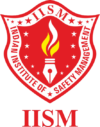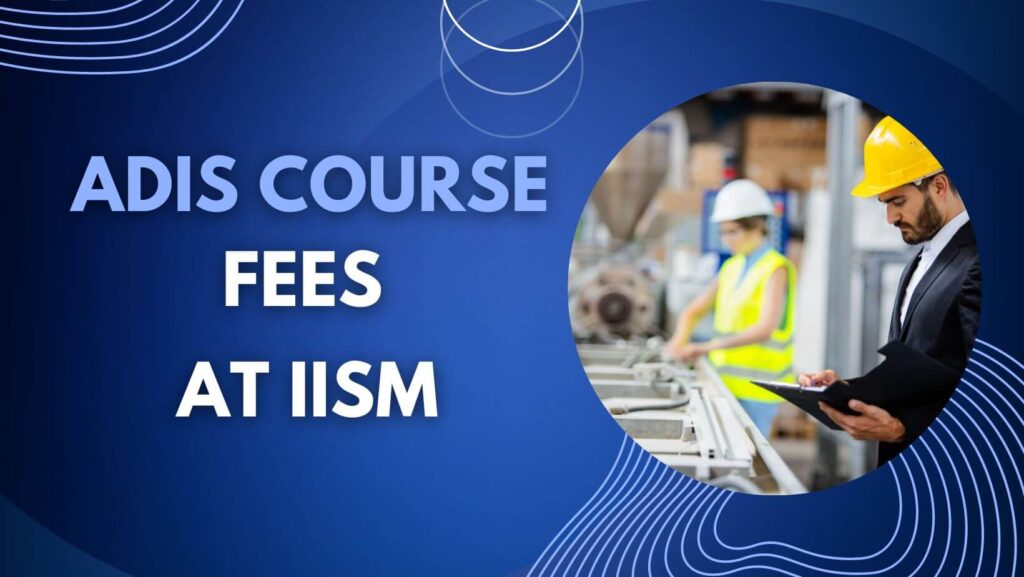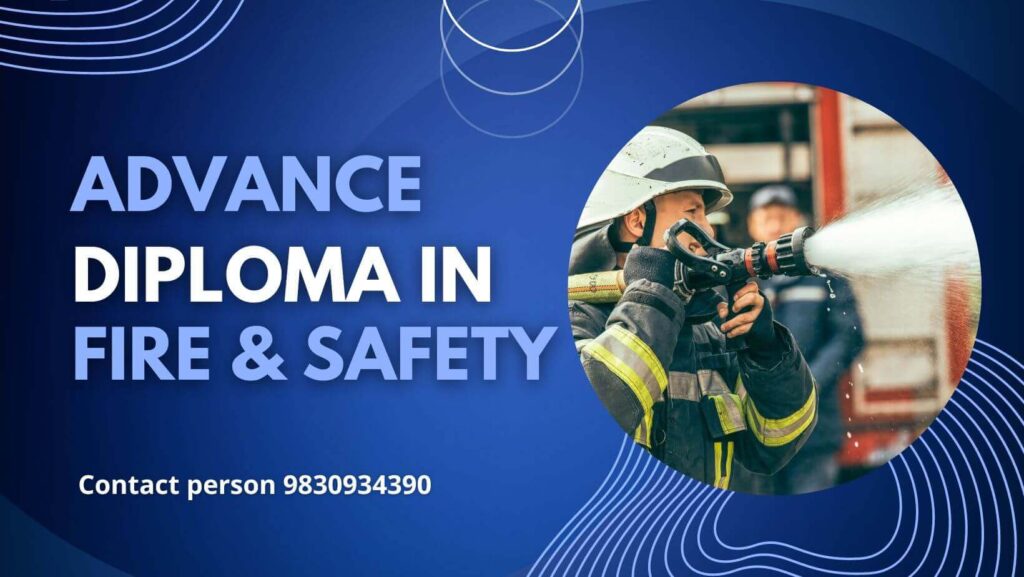Unraveling the Path to Safety: A Comprehensive Guide to the ADIS Course Syllabus
In the realm of safety management, an ADIS (Advanced Diploma in Industrial Safety) course is highly sought after by professionals looking to enhance their expertise and advance their careers. The Indian Institute of Safety Management (IISM) stands tall as a leading institution offering this course, providing a well-structured and comprehensive syllabus that equips students with the necessary knowledge and skills to excel in the field of safety management. In this blog post, we will explore the intricacies of the ADIS course syllabus at IISM and understand why it is considered the best choice for aspiring safety professionals.
Understanding the ADIS Course
The ADIS course syllabus at IISM is designed to provide students with a deep understanding of industrial safety management. It covers essential aspects of safety practices, hazard identification, risk assessment, and mitigation techniques. The ADIS course syllabus is meticulously crafted to ensure that students gain the expertise needed to promote a safe and secure work environment in various industries.

Key Components of the ADIS Course Syllabus
The ADIS course syllabus may vary depending on the institution offering the program. However, I can provide a general outline of topics commonly covered in such a course:
- Introduction to Industrial Safety
- Basics of safety and its importance in industrial settings
- Evolution of safety practices and regulations
- Occupational Health and Safety (OHS) standards and laws
- Industrial Hazards and Risk Assessment
- Identification of potential hazards in different industries
- Risk assessment techniques and methods
- Hazard control measures and hierarchy of controls
- Fire Safety and Emergency Management
- Fire prevention and protection systems
- Fire extinguishing techniques and equipment
- Emergency response planning and drills
- Workplace Safety Management
- Safety policy development and implementation
- Safety inspections and audits
- Incident reporting and investigation
- Occupational Health and Hygiene
- Occupational health hazards (e.g., chemical, biological, physical)
- Workplace exposure assessment and monitoring
- Personal Protective Equipment (PPE) selection and usage
- Electrical Safety
- Electrical hazards and safety precautions
- Lockout/Tagout (LOTO) procedures
- Electrical safety equipment and standards
- Machinery and Equipment Safety
- Safe operation and maintenance of industrial machinery
- Machine guarding and safety interlocks
- Safe handling of tools and equipment
- Construction Safety
- Construction site hazards and safety measures
- Scaffolding and working at heights safety
- Excavation and confined space safety
- Chemical Safety
- Handling, storage, and transportation of hazardous chemicals
- Material Safety Data Sheets (MSDS) and chemical labeling
- Spill response and containment procedures
- Environmental Management
- Environmental regulations and compliance
- Waste management and pollution control
- Sustainable practices in industrial settings
- Safety Training and Communication
- Developing effective safety training programs
- Communication strategies for promoting safety culture
- Behavioral safety and human factors in accidents
- Legal and Regulatory Compliance
- Understanding relevant safety laws and regulations
- Role of government agencies in safety oversight
- Case studies of industrial accidents and their implications
Please note that this ADIS Course syllabus is a general overview and may not cover all the topics in detail. The actual ADIS course syllabus may vary, and some institutions might include additional subjects or modify the curriculum based on specific industry requirements. It’s advisable to check with the respective institution offering the ADIS course for the most up-to-date and detailed ADIS course syllabus.
Why choose IISM Institute for ADIS Course?
- Hands-on- training
One of the most significant advantages of pursuing the ADIS course at IISM is the emphasis on practical training. Students are provided with hands-on experience and exposure to real-life scenarios, enabling them to apply their theoretical knowledge to practical situations. This practical approach equips graduates with the confidence to face challenges in the field of safety management effectively.
2. Qualified and Experienced Faculty
IISM, affiliated by West Bengal State Council of Technical & Vocational Education and Skill Development, takes pride in its distinguished faculty comprising experienced professionals from the safety industry. The instructors bring a wealth of practical knowledge to the classroom, ensuring that students receive top-notch guidance throughout their learning journey. With their vast expertise, the faculty members inspire and mentor the students to become competent safety leaders.
3. State-of-the-Art Facilities and Infrastructure
IISM offers an enabling learning environment with state-of-the-art facilities and infrastructure. The institute is equipped with advanced laboratories, simulation centers, and libraries with an extensive collection of safety-related resources. This infrastructure allows students to access the latest tools and technologies used in safety management, preparing them for the dynamic challenges of the industry.
4.Industry Partnerships and Placement Assistance
IISM’s strong connections with leading industries give students access to various opportunities for internships and placements. The institute’s placement cell actively assists students in securing rewarding positions in reputed organizations, ensuring a bright future for graduates.
FAQ on ADIS Course Syllabus
- What is an Advanced Diploma in Industrial Safety?
An Advanced Diploma in Industrial Safety is a specialized program designed to provide students with in-depth knowledge and practical skills related to workplace safety and risk management in industrial settings. The course aims to train individuals to identify potential hazards, implement safety measures, and ensure compliance with safety regulations to prevent accidents and ensure the well-being of workers. - What are the eligibility criteria for enrolling in this program?
The eligibility criteria may vary from one institution to another, but generally, candidates should have completed their high school education (10+2 or equivalent) with a minimum specified percentage. Additionally, some institutions may require prior work experience or a basic understanding of industrial processes. - What topics are covered in the ADIS course syllabus ?
The ADIS course syllabus typically includes the following core topics:
- Principles of Occupational Health and Safety
- Industrial Hygiene and Workplace Hazards
- Fire Safety and Emergency Response
- Safety Management Systems
- Safety Legislation and Compliance
- Hazard Identification and Risk Assessment
- Incident Investigation and Analysis
- Safety Training and Communication
- Safety Auditing and Inspection
- Industrial Ergonomics and Human Factors
- Environmental Management and Sustainability
- How long does the program usually last?
The duration of the Advanced Diploma in Industrial Safety can vary depending on the educational institution and the mode of study. Generally, it can be a full-time program spanning 1 to 2 years or a part-time/distance learning program with a longer duration to accommodate working professionals. - What career opportunities are available after completing this program?
After completing the Advanced Diploma in Industrial Safety, graduates can pursue various job roles related to workplace safety and risk management in different industries such as manufacturing, construction, oil and gas, mining, and transportation. Some potential job roles include Safety Officer, Safety Supervisor, Safety Coordinator, Safety Consultant, Environmental Health and Safety (EHS) Specialist, and Compliance Officer. Graduates may also find employment opportunities in government regulatory agencies and consulting firms.
Conclusion
Choosing the right institute for pursuing the Advanced Diploma in Industrial Safety (ADIS) course is crucial for a successful career in safety management. Indian Institute of Safety Management (IISM) stands out as the best choice, offering a comprehensive syllabus, hands-on training, experienced faculty, and excellent placement support. By enrolling in the ADIS course at IISM, aspiring safety professionals can embark on a journey of knowledge and skill development, empowering them to contribute significantly to workplace safety and secure a promising career in the field.







